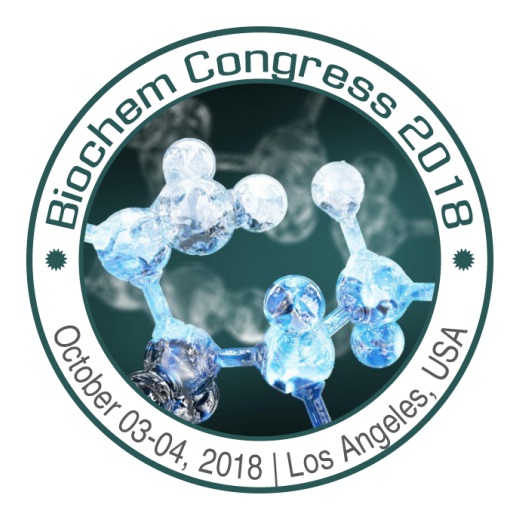Epidemiology
Epidemiology is a quantitative discipline built on a working knowledge of probability, statistics, and sound research methods. It is a method of causal reasoning based on developing and testing hypotheses pertaining to occurrence and prevention of morbidity and mortality; and also a tool for public health action to promote and protect the public's health based on science, causal reasoning, and a dose of practical common sense. Originally, epidemiology was concerned with epidemics of communicable diseases. The discipline was extended to endemic communicable diseases and non-communicable infectious diseases. Modern epidemiology has been applied to chronic diseases, injuries, birth defects, maternal-child health, occupational health, and environmental health. Now, even behaviors related to health and well-being (amount of exercise, seat-belt use, etc.) are recognized as valid subjects for applying epidemiologic methods.
- Communicable and non-communicable epidemiology
- Novel methods of epidemiology
- Nutritional Status
Related Conference of Epidemiology
Epidemiology Conference Speakers
Recommended Sessions
- Clinical Pathology
- Animal and Plant Biochemistry
- Antibody Engineering & Therapeutics
- Biochemistry in Cancer research
- Biomathematics and Biostatistics
- Biophysical techniques
- Biophysics
- Cellular and Molecular Biology
- Clinical & Forensic Biochemistry
- Computational Chemistry and Chemical Biology
- Environmental Biochemistry
- Enzymology and Biochemistry
- Epidemiology
- Food and Nutritional Biochemistry
- Gene Expression and Genetic Engineering
- Improving Rare Disease Diagnosis with Metabolomics
- Industrial & Structural Biochemistry
- Metabolic Biochemistry
- Metabolomic Technology and Bioinformatics
- Metabolomics in Ophthalmology
- Obesity and Metabolic Disorder
- Pharmaceutical Biochemistry
- Protein Engineering
Related Journals
Are you interested in
- 3D Structure Determination - Structural Biology-2026 (France)
- Advanced Drug Delivery Systems for Metabolic Therapy - DRUG CHEMISTRY CONF 2026 (France)
- Advanced Techniques in Structural Biology - Structural Biology-2026 (France)
- AI & Computational Structural Biology - Structural Biology-2026 (France)
- Biochemistry and Biophysics - Structural Biology-2026 (France)
- Biomarker-Guided Drug Development - DRUG CHEMISTRY CONF 2026 (France)
- Chemical Biology Tools in Metabolic Research - DRUG CHEMISTRY CONF 2026 (France)
- Computational Approach in Structural Biology - Structural Biology-2026 (France)
- Computational Drug Design and Molecular Modeling - DRUG CHEMISTRY CONF 2026 (France)
- Drug Designing and Biomarkers - Structural Biology-2026 (France)
- Drug Resistance and Therapeutic Durability - DRUG CHEMISTRY CONF 2026 (France)
- Enzyme Modulation Approaches in Antidiabetic Drug Design - DRUG CHEMISTRY CONF 2026 (France)
- Epigenetic Regulation and Small-Molecule Therapeutics - DRUG CHEMISTRY CONF 2026 (France)
- Future Directions in Drug Chemistry for Diabetes Management - DRUG CHEMISTRY CONF 2026 (France)
- Hybrid Approaches for Structure Prediction - Structural Biology-2026 (France)
- Lipid Chemistry and Metabolic Regulation - DRUG CHEMISTRY CONF 2026 (France)
- Medicinal Chemistry Strategies for Metabolic Disorders - DRUG CHEMISTRY CONF 2026 (France)
- Membrane Proteins and Receptors - Structural Biology-2026 (France)
- Molecular Modelling and Dynamics - Structural Biology-2026 (France)
- Natural Product Chemistry in Diabetes Drug Discovery - DRUG CHEMISTRY CONF 2026 (France)
- Oxidative Stress Modulation through Drug Chemistry - DRUG CHEMISTRY CONF 2026 (France)
- Peptide and Protein-Based Drug Chemistry - DRUG CHEMISTRY CONF 2026 (France)
- Pharmacokinetics and Drug Metabolism Studies - DRUG CHEMISTRY CONF 2026 (France)
- Prodrug Design and Chemical Activation Strategies - DRUG CHEMISTRY CONF 2026 (France)
- Proteomics and Genomics - Structural Biology-2026 (France)
- Regulatory Chemistry and Drug Safety Assessment - DRUG CHEMISTRY CONF 2026 (France)
- Structural Bioinformatics and Computational Biology - Structural Biology-2026 (France)
- Structural Biology in Cancer Research - Structural Biology-2026 (France)
- Structural Virology - Structural Biology-2026 (France)
- Structural Virology and Infectious Diseases - Structural Biology-2026 (France)
- Structure-Based Drug Discovery - Structural Biology-2026 (France)
- Structure-Based Solutions to Global Health Challenges - Structural Biology-2026 (France)
- Structure-Function Relationships - Structural Biology-2026 (France)
- Structure–Activity Relationship Studies in Drug Chemistry - DRUG CHEMISTRY CONF 2026 (France)
- Synthetic Chemistry Innovations in Drug Development - DRUG CHEMISTRY CONF 2026 (France)
- Targeting Pancreatic Function through Drug Chemistry - DRUG CHEMISTRY CONF 2026 (France)
- The Structural Basis of Disease - Structural Biology-2026 (France)
- Translational Drug Chemistry from Bench to Clinic - DRUG CHEMISTRY CONF 2026 (France)

